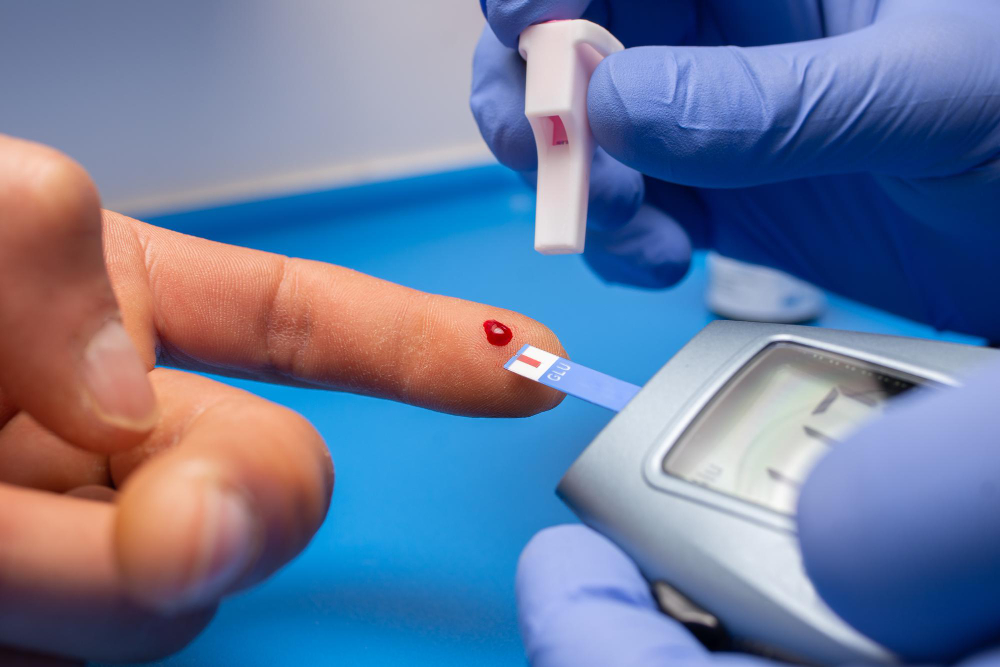Diabetes

Diabetes is primarily categorized into Type 1 and Type 2 diabetes, with distinct causes for each type:
Type 1 Diabetes:
- Autoimmune Response: The body’s immune system mistakenly attacks and destroys insulin-producing beta cells in the pancreas.
- Genetic Factors: Family history and genetic predisposition play a significant role.
- Environmental Factors: Certain viral infections and other environmental factors may trigger the autoimmune response.
Type 2 Diabetes:
- Insulin Resistance: The body’s cells become resistant to the effects of insulin, leading to higher blood sugar levels.
- Insufficient Insulin Production: The pancreas cannot produce enough insulin to manage blood glucose levels effectively.
- Lifestyle Factors: Obesity, sedentary lifestyle, poor diet, and lack of physical activity significantly increase the risk.
- Genetic Factors: Family history and genetic predisposition also contribute to the development of Type 2 diabetes.
Treatment of Diabetes
Effective management of diabetes focuses on maintaining blood glucose levels within the target range to prevent complications. Dr. Tanish Dhir emphasizes a comprehensive treatment approach:
Lifestyle Modifications:
- Healthy Diet: A balanced diet rich in fruits, vegetables, whole grains, and lean proteins helps manage blood glucose levels.
- Regular Exercise: Physical activity improves insulin sensitivity and aids in weight management.
- Weight Management: Achieving and maintaining a healthy weight is crucial, especially for Type 2 diabetes.
Medications:
- Insulin Therapy: Essential for Type 1 diabetes and sometimes required for Type 2 diabetes.
- Oral Medications: Various medications help manage Type 2 diabetes by improving insulin sensitivity, increasing insulin production, or decreasing glucose absorption.
- Non-Insulin Injectables: Medications like GLP-1 receptor agonists can help regulate blood sugar levels.
Monitoring and Education:
- Blood Glucose Monitoring: Regular monitoring helps track the effectiveness of the treatment plan.
- Patient Education: Understanding diabetes and its management empowers patients to take control of their health.
Advanced Treatments:
- Bariatric Surgery: In some cases, weight-loss surgery can significantly improve Type 2 diabetes.
- Pancreatic Transplantation: For selected patients with Type 1 diabetes, a pancreatic transplant can restore insulin production.
Dr. Tanish Dhir advocates for a personalized treatment plan tailored to each patient’s needs, emphasizing the importance of regular follow-ups and adjustments to the treatment regimen as necessary. By adopting a holistic and proactive approach, patients can achieve better control over their diabetes and lead healthier lives.
